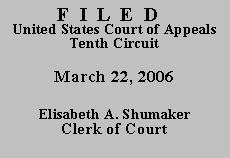

v.
LOUIS E. BRUCE, Warden,
Hutchinson Correctional Facility, in
his individual and official capacity;
DAVID McKUNE, Warden, Lansing
Correctional Facility, in his individual
and official capacity
ANTHONY L. DAVIS,
After examining the briefs and appellate record, this panel has determined
unanimously that oral argument would not materially assist the determination of
this appeal. See Fed. R. App. P. 34(a)(2); 10th Cir. R. 34.1(G). The case is
therefore ordered submitted without oral argument.
Anthony L. Davis, appearing pro se,(1) filed this section 1983 action seeking damages and injunctive relief based upon conditions of his confinement. The district court determined that he failed to fully exhaust his administrative remedies and allowed him the opportunity to supplement his complaint. He did so, but inadequately. The district court held "there is no showing that [Davis] pursued administrative review of this claim through the formal grievance procedure" and dismissed his complaint without prejudice under 42 U.S.C. § 1997e(a) of the Prison Litigation Reform Act (PLRA).(2) (R. Doc. 9 at 3.) Rather than refile after documenting full exhaustion of administrative remedies, Davis appealed from the district court's order.(3)
Our review of a dismissal under the PLRA for failure to exhaust administrative remedies is de novo. Jernigan v. Stuchell, 304 F.3d 1030, 1032 (10th Cir. 2002). The PLRA "directs that '[n]o action shall be brought with respect to prison conditions' until a prisoner exhausts his available administrative remedies." Steele v. Fed. Bureau of Prisons, 355 F.3d 1204, 1206 (10th Cir. 2003) (quoting 42 U.S.C. § 1997e(a)), cert. denied, 543 U.S. 925 (2004). "[E]xhaustion [is] 'mandatory' for all 'inmate suits about prison life.'" Id. at 1207 (quoting Porter v. Nussle, 534 U.S. 516 (2002)). "[A] prisoner must plead exhaustion in his complaint," id. at 1209, and "either attach copies of administrative proceedings or describe their disposition with specificity." Id. at 1211. "If a prisoner . . . submit[s] a complaint containing one or more unexhausted claims, the district court ordinarily must dismiss the entire action without prejudice." Ross, 365 F.3d at 1190.
Davis clearly filed this action in the district court without pleading exhaustion of administrative remedies. In his filing with this court, Davis argues the merits of his case, and in a summary and conclusory fashion, without citation of authority or record references, quarrels with the district court's conclusions. This is insufficient. See United States v. Rodriguez-Aguirre, 108 F.3d 1228, 1237 n.8 (10th Cir. 1997); Hernandez v. Starbuck, 69 F.3d 1089, 1093 (10th Cir. 1995). The district court properly dismissed Davis' complaint without prejudice.
AFFIRMED.
Entered by the Court:
Terrence L. O'Brien
United States Circuit Judge
*. This order and judgment is not binding precedent except under the doctrines of law of the case, res judicata and collateral estoppel. The court generally disfavors the citation of orders and judgments; nevertheless, an order and judgment may be cited under the terms and conditions of 10th Cir. R. 36.3.
1. We construe pro se pleadings liberally. Ledbetter v. City of Topeka, Kan., 318 F.3d 1183, 1187 (10th Cir. 2003).
2. 42 U.S.C. § 1997e(a) provides:
No action shall be brought with respect to prison conditions under section 1983 of this title, or any other Federal law, by a prisoner confined in any jail, prison, or other correctional facility until such administrative remedies as are available are exhausted.
3. Although the district court dismissed Davis' complaint without prejudice, we have jurisdiction over this appeal because the dismissal disposed of the entire case. Amazon, Inc. v. Dirt Camp, Inc., 273 F.3d 1271, 1275 (10th Cir. 2001). We have routinely entertained appeals from district courts' dismissals of claims without prejudice for failure to exhaust under the PLRA. See, e.g., Ross v. County of Bernalillo, 365 F.3d 1181, 1189 (10th Cir. 2004).